Dialectical behavior therapy (DBT) is a treatment method that brings together seemingly oppositional forces: acceptance and behavior change. DBT is commonly used to address addiction and mental health disorders and was originally designed as an approach to treating borderline personality disorder. The approach is particularly helpful for managing extreme emotions. This also means DBT is effective at tackling scenarios involving a dual diagnosis.
Reach out to 844.959.4998 to learn more about Athens Recovery’s dialectical behavior therapy program for addiction and co-occurring mental health concerns.
What Is DBT?
DBT was originally developed in the 1970s as an approach to treating borderline personality disorder. It is a specialized offshoot of cognitive-behavioral therapy that incorporates acceptance alongside behavior change. Three core elements define the DBT methodology: dialectics, mindfulness, and emotional control.
Dialectics refers to the conjunction of opposing forces. At face value, acceptance and behavior change may seem to be opposites. Wouldn’t accepting your current reality mean giving up on changing your situation? It is a fine line to walk, but DBT is predicated on bringing these concepts together to produce tangible outcomes. Clients are encouraged to accept their current patterns of thinking and behavior yet are pushed to replace them with healthier ways of being.
Mindfulness focuses on keeping clients in the present. Learning and deploying skills in the here and now is a primary goal of DBT. And last is emotional control. DBT recognizes that some people are more predisposed to emotional instability. Then too, some environments are inherently more unstable and may regularly cause emotional distress. Learning to manage extreme emotions is a key priority of DBT.
What Is Dual Diagnosis?
When someone is said to have a dual diagnosis, it means they have a substance use disorder and a mental health concern simultaneously. This situation is much more common than people think. In addition, for the majority of the 20th century, dual diagnosis treatment was ignored in favor of sequential treatment.
The sequential treatment approach held that it was necessary to treat addiction and mental health separately. Once you controlled one issue, then you could turn to handle the other. More often than not, this approach failed. Dual diagnosis treatment, where both disorders are treated at the same time, has replaced sequential treatment as the norm. Certainly, dual diagnosis can be complex and progress may be slow. But failing to address the full range of a client’s needs during recovery never produces the kind of outcomes that people deserve to attain.
Dual diagnosis is also referred to as co-occurring disorders. Some of the most common types of dual diagnosis include the following mental health disorders paired with an addiction:
- Generalized anxiety disorder
- Eating disorders
- Bipolar disorder
- Post-traumatic stress disorder
- Personality disorders
- Schizophrenia
- Attention deficit hyperactivity disorder
DBT in Dual Diagnosis
DBT is used in dual diagnosis treatment quite regularly. It is often leveraged as a core component of a comprehensive addiction treatment plan. One reason that DBT in dual diagnosis treatment is so common relates to its action orientation. Clients receiving DBT actively practice coping mechanisms and gain the ability to better manage their emotions.
This may seem like a secondary concern to other issues during addiction recovery but it is actually vital for maintaining sobriety. Stress and emotional instability are two of the biggest relapse triggers. Learning to effectively manage emotions, stress, and relational conflict is key to a lasting recovery. Dual diagnosis and DBT also make a great pairing because of the way this therapy targets habit change. Those changes apply to thoughts and behaviors.
DBT for Dual Diagnosis at Athens Recovery
Athens Recovery commonly addresses dual diagnosis with DBT. More often than not, DBT is just one part of an individualized treatment plan that connects clients to resources, education, therapy, and support groups.
Find out more about DBT in dual diagnosis treatment by calling 844.959.4998.

